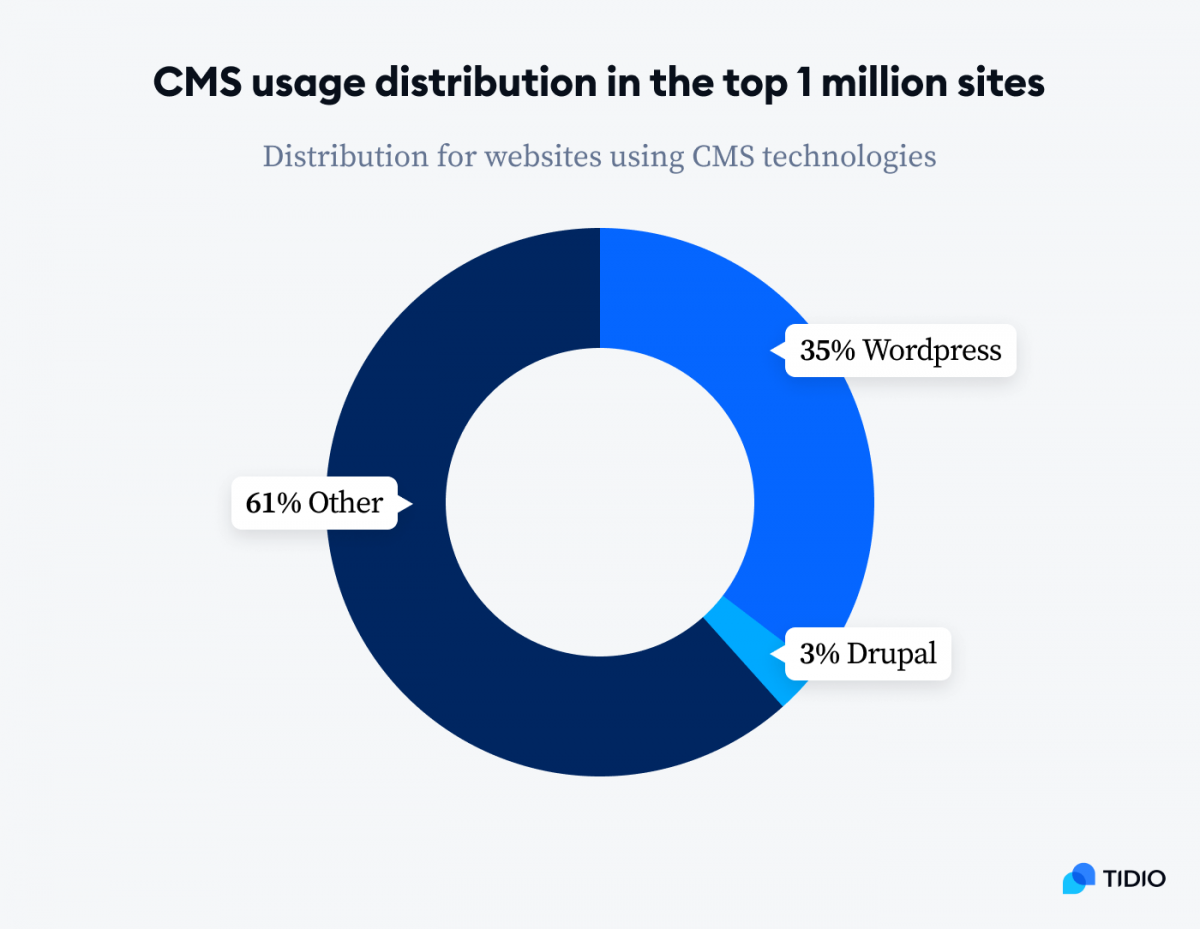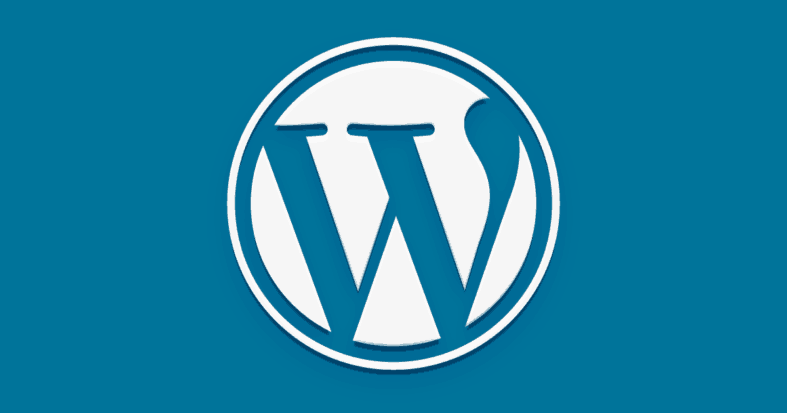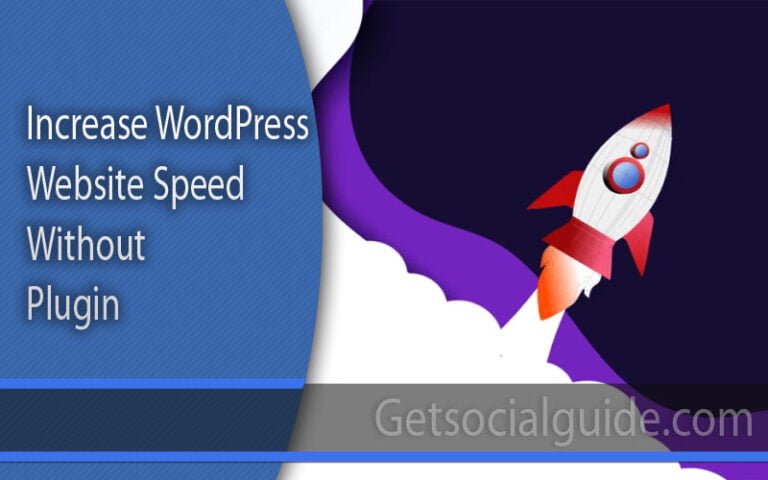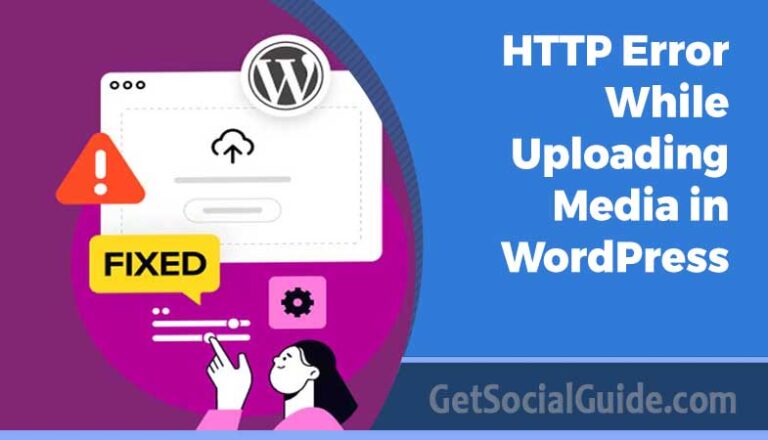WordPress Guide -Beginner’s to Expert
WordPress is the most popular CMS in the world for good reason. It has various advantages over other tools, in addition to being flexible and free. This comprehensive lesson will show you why this is the best option for creating your blog.
WordPress is one of the most thought about and recommended programmes for developing blogs, websites, and online marketplaces.
If you’ve been reading our blog for a while, you may have noticed a pattern: we always recommend the platform whenever one of our posts covers hosting architecture or content management.
To give you an idea, WordPress commands a commanding 61% of the global CMS (content management systems) industry. To top it off, its primary rivals don’t even come close to posing a threat. With a 5% market share, Joomla is followed by Drupal (3.3%), Magento (1.6%), and Blogger (1.4%).
These information was updated for July 2019 and sourced from W3Techs. There is a strong reason why Umber continues to increase by the hour. WordPress is incredibly intuitive and user-friendly.
WordPress Guide

WordPress is a fantastic tool for quickly building your website. You can click through a variety of the themes, templates, and other components to assist you in creating your WordPress website. Additionally, you can utilise it to create your online store. It will be operational in no time with just a few plugins.
One of many reasons why all Digital Marketing professionals and students strive to become proficient with this tool is its wide range of applications.
What is WordPress?

A content management system is WordPress (CMS). In other words, it’s a system for managing web pages such as websites, blogs, online shops, news portals, member areas, and others.
But what does this CMS do?
The CMS’s goal is to handle material easily and effectively, as its name suggests. Its goal is to make it possible to update and create content for websites without the use of computer languages.
The goal is to make it simple enough that even content creators without any prior coding experience can easily and intuitively manage their entire portal, store, or blog.
In addition to the numerous options for modifying the website’s layout, this also includes creating text, using images and videos, and creating forms.
WordPress’s suggestion is to democratise the creation of websites, from specialised blogs to bigger pages for people who have a business, project, portfolio, or any other concept.
And it goes without saying that WordPress did not remain popular only among small and medium-sized content producers with such an expressive domain on the market.
On the contrary, some of the biggest websites in the world have chosen to host on the platform. This includes the websites of renowned companies like Forbes and BBC America as well as the blog for the PlayStation console.
Why Is WordPress So Popular?
You might be left wondering why WordPress is so popular after learning about its enormous user base. Let’s examine the factors that contributed to WordPress’ success.
WordPress is considerably more than just a straightforward blogging application, contrary to popular belief.
WordPress enables anyone to enhance and modify its code to one’s preferences because it is free and an open source project. Additionally, it offers tens of thousands of free widgets, themes, and other tools.
With the help of all these features, you can build any kind of website, from straightforward blogs to e-commerce sites, knowledge bases, and job boards.
The fact that WordPress is totally free and works with all hosting systems using PHP and MySQL is another reason. Additionally, this CMS is regularly updated with new versions that enhance performance, add new features, and enhance security.
Last but not least, WordPress has a sizable online community with specialised forums and discussions. One of the easiest content management systems to use is WordPress, thanks to the abundance of information and the thousands of tutorials available.
What Is a CMS?
A CMS, or content management system, is a programme that enables the creation, modification, and publication of digital information. Most of the time, it also accommodates several users, enabling teamwork.
For instance, WordPress enables the creation of multiple administrative users, each with unique permissions. Text formatting options, the ability to upload videos, photos, audio, maps, and even your own code are all included in content management systems.
Two key parts make up a content management system:
- A tool for managing content The CMA is a graphical user interface (GUI) that enables users to add, edit, delete, and publish content without ever having to know HTML or any other programming languages.
- a programme for delivering content After content enters the CMA, back-end services that manage and deliver it are the responsibility of the CDA.
The three most widely used content management systems worldwide are Drupal, Joomla, and WordPress.
How does it work?
Users of WordPress can choose between the WordPress.com platform and WordPress.org. The first is a free service that hosts blogs and websites built with the WordPress platform.
The second is an open-source platform that you may install on any server of your choice for free by downloading it from the official website. You will require a domain and a host in order to use the free platform (which we will discuss later in this guide).
The differences between them will be discussed later, so we won’t delve into them now. It is critical to make clear the presence of these two WordPress usage options for the time being.
They also use a very similar system. The utility includes an interface for site management. On this screen, there are a number of categories, each with unique (and very helpful) features for your website or blog.
These characteristics are worth highlighting:
- adding, programming, and editing blog or website posts as if they were written in MS Word, for instance;
- media file editing and insertion, including audio, video, and image files;
- adding new website menus, categories, tags, and pages;
- moderating comments made by visitors;
- recording data for basic access;
- editing the website’s design;
- regulating page administrators’ permissions;
- creating, incorporating, amending, and removing plugins and extensions;
- data import and export from a website or blog.
Why migrate to WordPress?
What happens if you employ a different content management system? Perhaps you’re still debating whether it will be worthwhile to switch to WordPress. Of course, there are other effective programs available, both for free and for a fee. However, very few of them are better than WordPress. Additionally, we advise moving your website to the platform for at least three reasons. Look them up!
1. Advanced security
The WordPress platform’s high level of security is the main argument for switching. This is made possible by the regular updates, dedicated plugins to safeguard your information, and the reliable and engaged behavior of the community.
It is understandable why significant businesses from a range of industries choose WordPress on the global market. None of them would entrust a flimsy and weak platform with their private information.
2. Complete control
WordPress comes with everything you might need for a website, both in terms of front-end layout and back-end structure and support. The platform is comprehensive and offers numerous reliable solutions for all types of digital operations.
All of this can be done on a platform that is quick and accurate and works on any device. WordPress was designed for you if total control is what you’re after.
3. Usability and interface
Numerous tools rely on strong solutions but fall short in providing a positive user experience. Thankfully, WordPress does not operate in that way. Every advancement makes the platform easier to use. For instance, control was added in the most recent updates using content blocks.
Internal content management is made even simpler as a result, and more attractive and useful pages can be produced.
Why Choose WordPress to Make a Website?
WordPress was initially intended to be a blogging and related publishing platform, but today it powers one-third of all websites. This is due to the numerous benefits WordPress offers website owners, including:
Flexibility and Adaptability
WordPress allows you to run everything from small businesses to online shops. WordPress will be flexible enough to accommodate whatever you decide to do.
User-Friendly
Even if you lack any technical knowledge, a WordPress site can be up and running in a matter of minutes. A domain name and web hosting account are all you need.
Themes and Plugins
WordPress themes give you a lot of options for the look and features of your website, whereas plugins are the specialized features that address particular requirements for your website, such as shopping carts, contact forms, galleries, and more.
High Ranking
WordPress websites frequently rank higher than non-WordPress websites because of their large number, regular content updates, inclusion of plugins, and range of tools that assist in the creation of scheduled and optimized material.
The fact that WordPress sites are mobile-responsive, feature an integrated blog, and provide excellent customer service are just a few more reasons why people should use it.
Now that you are aware of the benefits of a WordPress website, you should also be aware of the distinction between WordPress.com and WordPress.org. Find out more below.
How to build a website with WordPress: Tips and tricks
We couldn’t leave out giving you something extra in a guide on how to create a WordPress website! So let’s take a look at some pointers and advice you ought to bear in mind as you create your WordPress website.
- Make your site visible for Google straight away
The search engine visibility box in the reading settings should be unchecked once you’ve finished configuring your WordPress website. then notify Google that it is prepared for indexing by visiting Google Search Console
- Consider user experience
Create a WordPress website that is user-friendly. When browsing your website, you should consider whether the color, style, tone, and font are all consistent. Is it simple to use? Is there a hierarchy? Avoid outlining your past to the user before letting them know what you’re doing. Is it responsive for mobile?
- Use Google Analytics
To monitor the effectiveness of your website, use Google Analytics. Bounce rate, visitor count, and other helpful analytics are available. Watch them each month to see how well your website is performing.
WordPress.org vs WordPress.com – Which One to Choose?
A common misconception is that WordPress.org and WordPress.com are the same website.
If you host your site on WordPress.org, which is advised if you are familiar with how WordPress functions, you have complete freedom to change and customize your website’s design. When you host your own website, you can get the most flexible website builder.
In contrast, WordPress.com is used when you want WordPress.com to manage every aspect of your website, including hosting. In that case, your web design options are limited. However, it is simpler and easier; it is advised for beginners.
Let’s learn how to create a WordPress website now that you are familiar with its history and how simple it can be for you to create a website.
FAQ – WordPress Guide
What is WordPress used for?
It can be applied to many different things. You can adapt your website to these particular requirements, whether you want to launch a WordPress business website, an e-commerce website, or post your podcasts.
Where to find help when already using WordPress?
Go to the WordPress support page if you’re already using WordPress and are having issues. Many articles and documents with WordPress instructions can be found there. These materials offer free WordPress lessons on fundamental usage as well as more specialized topics like Security or Advanced ones. Find the information you’re looking for by searching the papers on the page.
If you still are unable to find the solution to your problem, check out the WordPress forum to see if someone there can assist. You’re in excellent hands because the WordPress community is enormous and they love to support one another.
Conclusion – WordPress Guide
WordPress was initially developed as a platform for managing blogs, but over time it evolved into a development system for the widest range of website types.
WordPress has distinguished itself for a number of reasons, from the simplest initiatives to the most durable ones. A few of them are its easy-to-use interface for non-programmers, the abundance of plugins and themes, the ability to customize the source code, and the vibrant community.
It is no accident that it is now the industry standard for CMS platforms. You have a good chance of controlling the content of a website powered by WordPress.
To make the most of this platform, explore its features and implement our advice.
It’s time to comprehend why Rock Stage is the most comprehensive and secure WordPress solution after learning about its history, basic usage, and key platform secrets.






Thank you for your article on WordPress Guide